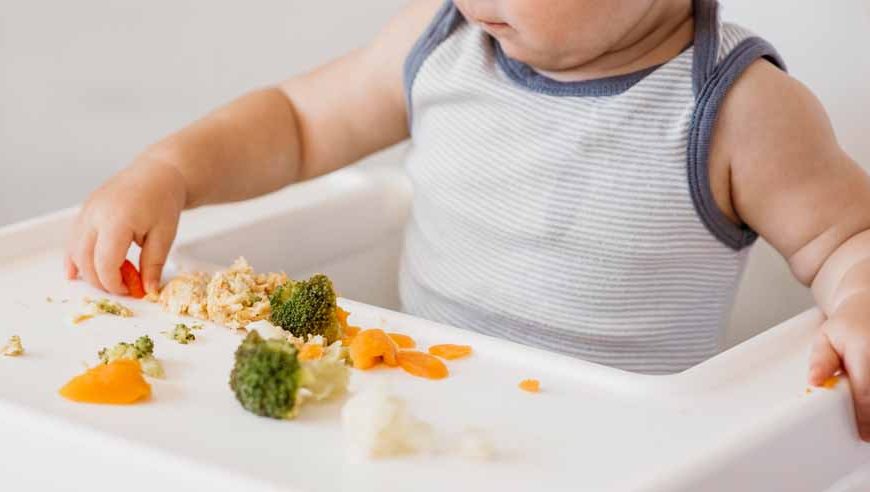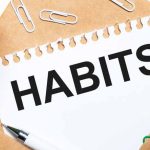Parenting is tricky at the best of times and is an important, but busy responsibility.; there is sometimes an overwhelming amount of information available regarding their health, nutrition and overall well-being. It’s really hard to know how to manage it all, catering to their personal taste so they eat enough daily while ensuring that they are eating nutritious food packed with the right amount of vitamins. Having a guideline first on what not to do allows us to work through food myths we regularly hear from the people around us in our lives.
There is no one right meal plan, nor is there only one way to ensure that our toddlers are meeting their nutritional needs as they switch their time between their homes, daycares, preschools etc. Therefore, instead of providing a list of food toddlers should eat, we are going to work on providing some information on the common myths that are taken as facts by many young parents. Don’t forget that a lot of the information out there is often well-designed marketing tactics to push certain foods.
Let’s work through some common myths and figure out what are actual facts and some simple need-to-know information:
- Myth: Ghee and oil should be avoided in a toddler’s diet
- Myth: Toddlers must drink cow’s milk exclusively after turning one
- Myth: Eggs should not be included in a toddler’s daily diet
- Myth: Fruit juices are a healthy choice for toddlers
- Myth: Toddlers need sugary snacks for quick energy
- Myth: Multivitamin supplements are necessary for all toddlers
- Myth: Toddlers will eat when hungry, so specific nutrients are not a concern
- Myth: Toddlers can consume the same portion sizes as adults
- Myth: Iron-rich foods are not necessary for toddlers
- Myth: Allergenic foods should be avoided until later in childhood
Fact: Ghee and some oils are considered healthy fats and are essential for a toddler’s growth and brain development. It is beneficial to Incorporate sources of such unsaturated fats into their meals in moderation.
Fact: Although cow’s milk is extremely beneficial, it definitely is not the only source of calcium. Toddlers can also get calcium from other dairy products, such as yoghurt, paneer, cottage cheese etc. as well as fortified plant-based milk, and calcium-rich foods like leafy greens. These are great options that appeal to different preferences without compromising on a child’s calcium intake.
Fact: Many grow up hearing about eggs being high in cholesterol and needing to be alternated with other breakfast foods. Although it is a great idea to try various proteins, grains etc. into one’s breakfast, it is equally important to remember that eggs are a nutritious food and can be part of a toddler’s daily diet if they genuinely just enjoy eggs! They are a very good source of protein and provide various essential nutrients to one’s toddlers!
Fact: With a multitude of drinks being sold in the market today (often marketed towards children and their parents), fruit juice can masquerade as a healthier choice than many of the sugary carbonated drinks. However, it is always best to give whole fruits as they provide all the nutrition packed in with the juice that your little ones will enjoy eating, and it’s a great way to keep them engaged for a little bit longer. Juices alone lack the fibre found in whole fruits and often contribute to excessive sugar intake.
Fact: While toddlers have high energy needs because those little ones sure can run around all day; it’s important to remember that high sugary options do not provide the energy we think they do. Instead, provide nutrient-dense healthy snacks which can include fruits, vegetables, and whole grains.
Fact: Before pharmaceutical companies started to create multiple multivitamins, we received all our nutrition from our environment. In most cases, toddlers too can obtain all the necessary nutrients from a well-balanced diet. Certainly, consult with a healthcare professional to determine your personal needs but don’t forget the power of healthy foods served to your toddler by you, their various caregivers and all the way to educators within their preschools.
Fact: While better to avoid force-feeding your toddler in any way, it is important to take note of their intake and how they regulate it. Are they not hungry or are they not liking the food you are offering? It’s crucial to offer a variety of nutrient-dense foods so they receive the necessary vitamins and minerals for their growth and development.
Fact: Toddlers have smaller stomachs but their daily activity can also be fairly different than adults. It is more beneficial to serve them smaller, frequent meals and snacks. It’s good to stay engaged and learn the signs of when they are hungry and full for optimal calorie intake and to avoid any over-eating.
Fact: Iron is vital for cognitive development among all age groups, and especially toddlers have high iron needs. Always include iron-rich foods like lean meats, lentils, and fortified cereals in their diet.
Fact: Introducing common allergenic foods, such as eggs, peanuts or tree nuts, early in a child’s diet (unless there is a known family history of allergies) may actually reduce the risk of developing allergies. Always ensure to consult with a healthcare professional before introducing these foods to be prepared for any adverse reaction to the allergenic foods introduced.
Understanding what may be best for our little toddler or preschoolers’ nutrition can be a bit complicated, it’s easy to constantly second guess the information we have at hand and if it really is the right thing to do. It’s like sorting through an old encyclopaedia of information with nobody available to check your facts. The key is to give your toddlers a variety of different foods that help them stay healthy, happy and strong. Introduce various foods in moderation and follow along with their cues to see how they feel and react to the foods as well. Trust yourself as a caregiver to make a decision that will support them and don’t let too much information confuse you either, stick to the basics and provide simple meals – remember, if something has a long ingredient list or comes out of a box and not nature, there is likely a healthier choice. When we give toddlers healthy meals and make nutrition an exciting subject, we’re setting them up for a healthy life that will serve them well in the long run.
Say goodbye to the wrong ideas and give your little ones the most nutritious and tasty meals ever! If you are interested in more information about common misconceptions that are prevalent regarding a toddler’s nutrition, do touch base with the EuroKids website.
The information provided on this website is not a substitute for professional medical advice. EuroKids encourages you to consult with a qualified healthcare professional for any health concerns you may have. The information on this website is not intended to diagnose, treat, cure, or prevent any disease.
















